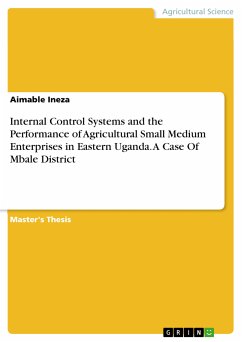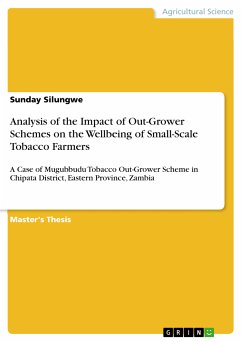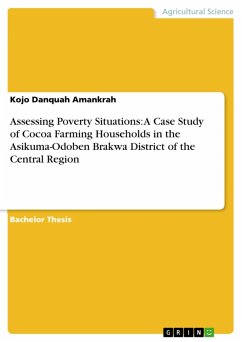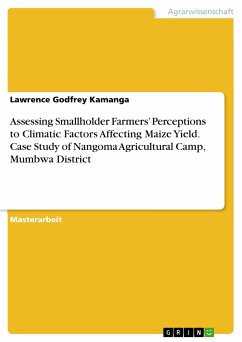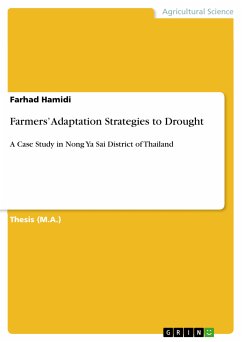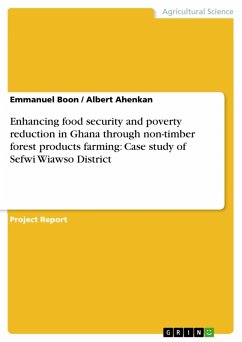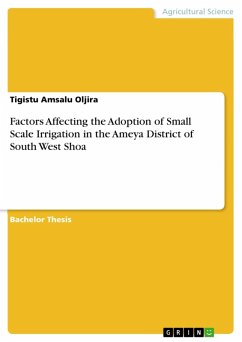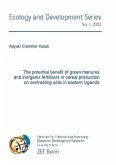Master's Thesis from the year 2016 in the subject Agrarian Studies, grade: 75%, Uganda Management Institute, course: Business Administration (Master's), language: English, abstract: This study aimed at establishing the contribution of internal control systems towards the performance of agricultural SMEs in Eastern Uganda, with a case study of SMEs in Mbale district. The study objectives were (i) To examine the extent to which assets controls predict the performance of agricultural SMEs in Mbale district; (ii) To establish the extent to which financial controls predict the performance of agricultural SMEs in Mbale district; (iii) To assess the extent to which compliance controls predict the performance of agricultural SMEs in Mbale district; The study was conducted through a case study on agricultural SMEs in Mbale District. The results of multiple regression analysis between assets control and SME performance noted an adjusted R2 value of 0.194 implying that generally 19% of total variability in SME performance is explained by assets control mechanisms; while the analysis between financial control and SME performance showed an adjusted R2 value of 0.097 implying that generally 9.7% of total variability in SME performance is explained by financial control mechanisms and an adjusted R2 value of 0.131 between compliance control and SME performance implying that generally 13.1% of total variability in SME performance is explained by compliance control mechanisms. The conclusion was that generally, there is a weak positive correlation between internal control systems and the performance of Agricultural SMEs in Eastern Uganda. The weak prediction reflects the reality that there were other factors that influenced the performance of agricultural SMEs in Eastern Uganda. The study recommends additional research on the relationship between Informational Technology, agricultural mechanization, stability and availability of markets, participative management and agricultural SME performance.
Dieser Download kann aus rechtlichen Gründen nur mit Rechnungsadresse in A, B, BG, CY, CZ, D, DK, EW, E, FIN, F, GR, HR, H, IRL, I, LT, L, LR, M, NL, PL, P, R, S, SLO, SK ausgeliefert werden.

